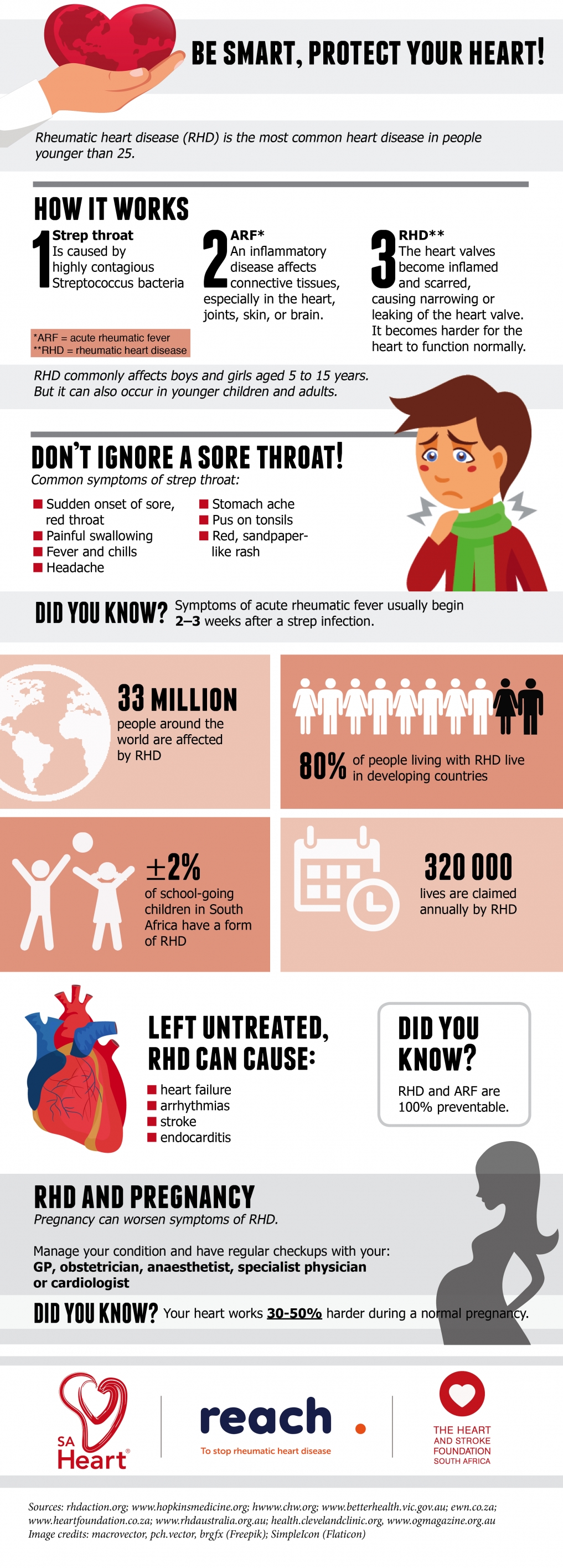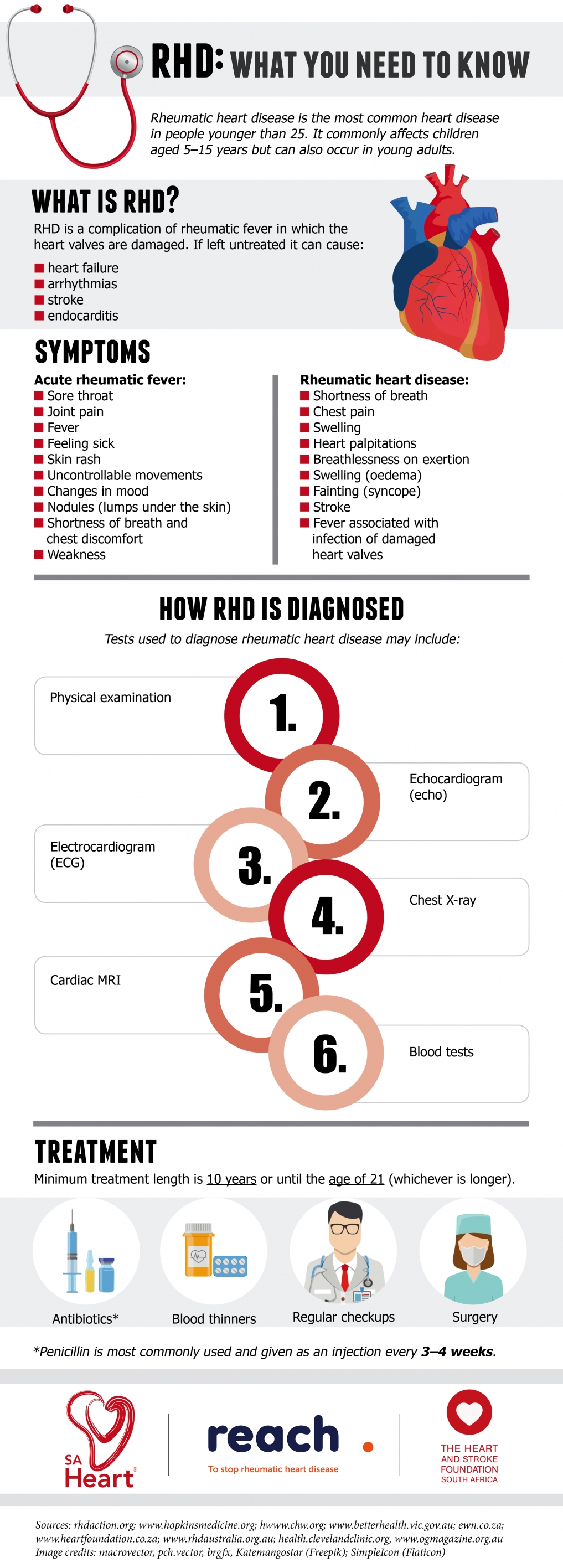The heart doctor: On preventing the preventable

Academic and Clinical Scientist Liesl Zühlke is an Associate Professor. She’s based in the Department of Paediatric Cardiology at the University of Cape Town, is an Affiliate Member of the University’s Institute of Infectious Disease and Molecular Medicine and is an NRF-rated scientist. Zühlke is a leading researcher in Rheumatic Fever (RF) and Rheumatic Heart Disease (RHD). A disease which, while preventable, had an estimated global burden of 33.4 million cases and a death toll of 319 400 in one year. This, according to a study looking at case estimates in 2015, which also noted 10.5 million disability-adjusted life-years (DALY). DALY is a measurement of the gap between current health status and an ideal health situation where the entire population lives to an advanced age, free of disease and disability.
Zühlke clarifies that RHD being preventable is a matter of when: “It’s only preventable at one stage – the sore throat (specifically Streptococcal or Strep Throat). This is what can go on to develop into Acute Rheumatic Fever (ARF).” RHD occurs when attacks of ARF cause permanent scarring and damage to the heart valves, which regulate blood flow into the heart chambers, they can’t open and close normally causing blood to move in the wrong direction. Heart failure results as the heart can’t pump blood effectively.
She continues, “If you want to treat it you must go back to the source. Awareness strategies developed must be around the first step; early diagnosis and treatment. The treatment of this type of sore throat is penicillin. The focus of public awareness should be in recognising that a sore throat caused by streptococcal bacteria can damage your heart, and this is what you need to do to fix it."
According to Zühlke clinical features of ARF occur two to three weeks following a Strep Throat infection. Common clinical manifestations are rheumatic carditis (30% – 80% of cases) and arthritis (35% – 66%).
She says, “Children with heart disease are a lost generation.” RHD is considered the most important form of acquired heart disease in children and young adults living in developing countries (inhabited by 80% of the world’s population). The disease accounts for approximately 15% of all patients with heart failure in endemic countries.
Awareness about RHD was dismal just a decade ago. But a lot of work has been done since. There’s been dramatic improvement but it’s never enough. “There are many global agencies; the African Union, the World Heart Federation and policies like the World Health Organization’s (WHO) Global Resolution which put the issue front and centre. Still, the awareness in communities is not as strong as we would like,” says Zühlke.
RHD is a disease of contradictions. Based on how endemic it is on the continent it’s of great import – yet to an extent it remains largely neglected. “RHD is a social barometer for inequality and poor access to healthcare etc,” says Zühlke. She mentions a report outlining the increased risk of RHD in association with overcrowding and unemployment, as well as overcrowding and distance from the nearest health centre. The importance of socio-economic factors is further underscored by the virtual disappearance of RHD in industrialised countries since the mid-20th century, which started well before the introduction of penicillin. By contrast, RHD is still endemic in Africa, Asia, South America, and developing communities of Australasia.
“Lack of awareness, advocacy, and availability of penicillin are a global crisis. The latter is the cheapest, and of course first antibiotic but there’s no profit margin for pharmaceuticals,” she says. In addition to this is the issue of both children and adults who need to have heart failure and anti-coagulation medication. Both of which are often not available, or not easily accessible, or simply too expensive.


Zühlke says: “About 40-50% of people with RHD need cardiac surgery. The mechanical valve replacement can cost upwards from R50 000 for consumables alone, and a repair needs a specifically skilled surgeon. Funding is a critical issue at every stage of the disease. And that’s besides the costs to do research.” Add to this the challenge recognised as a lack of political will and it’s not surprising that the strides in preventing this disease can sometimes seem insignificant. Political will encourages leaders to take action: “Because of the WHO resolution last year which resulted in ministries of health, including SA, signing the agreement we’ve gotten some political say that helps hold people and countries accountable with: ‘You signed this in 2018 what have you done? How have you supported the resolution? What have the outcomes been?’”
It’s also important to look at the flip side of the coin and recognise that even with these hurdles there is a lot of research that continues to happen. People remain committed to this cause. She says, “A lot happens at the back of other studies, at the back of other grants, it’s self-funded, or people have received small grants. But when it comes to diseases like TB or HIV the funding RHD gets is simply not comparable.”
Zühlke recently received the SA Medical Research Council/ UK Department for International Development (MRC/DFID) African Research Leader Award. Although it was announced almost this time last year final contracts and funding only came through in June. This work will include cross-country collaborations with Namibia, Malawi, Egypt, Zambia and Ghana. For her it’s hard to consolidate that a year has gone by since the passing of her mentor, Professor Bongani Mayosi. The announcement came just days after his passing – making the two events, celebration and loss, closely intertwined.
It was under his guidance that findings for the REMEDY study the team had been working on were first presented to the affected community before being shared with the scientific community in Europe: “The Community Advisory Group was born out of that. The Listen to My Heart Rheumatic Heart Disease events came from that. Here patients literally get to listen to their own hearts, listen to others’ hearts, ask questions about the medication they’re on, and come to understand the link between their heart disease to the food they eat – their weight etc.” This initiative gained such traction that it has spread to multiple countries encouraging support groups that have resulted in more patient champions.
Zühlke became a student of Mayosi’s in 2008. An encounter which she says: “Irrevocably and indelibly changed my life. Not only did he alter my career trajectory, he grew me into an academic and clinical scientist… Leading to the foremost relationship in my academic life.” A relationship that has cultivated an award-winning scientist to use her passion and expertise to heal hearts.